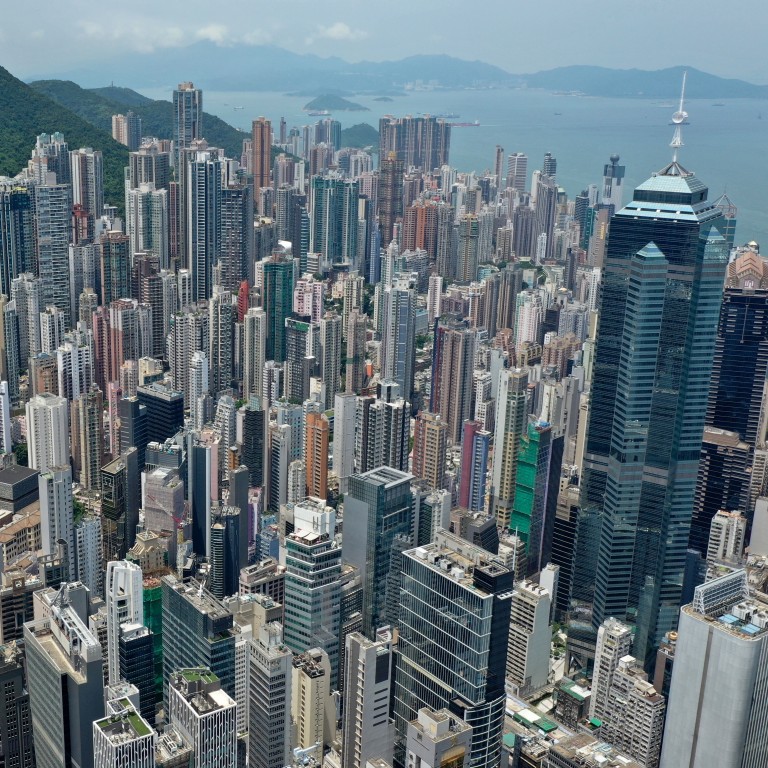
More than 1,000 Hong Kong homeowners could see loans exceed value of properties in first quarter
- Instances of negative equity could rise by 680 per cent by the time the government releases data for first quarter
- Surge in negative equity could deepen a correction in home prices
More than 1,000 homebuyers are on the verge of falling into negative equity in Hong Kong, after the prices of flats in some housing estates declined by more than 10 per cent from October last year, industry insiders said.
Negative equity occurs when a home loan exceeds the market value of the property involved. The last time the city recorded more than 1,000 such cases was in the second quarter of 2016, when it reported 1,307 instances of negative equity. The surge could also deepen a correction in home prices in the coming months.
There were 128 cases of negative equity in the three months ended December 31, according to Hong Kong Monetary Authority data. This means instances of negative equity could have risen by 680 per cent by the time the authority releases data for the first quarter of 2020 by the end of this month.
“The number of negative equity [homeowners] might rise above 1,000 in the first quarter this year,” said Ivy Wong, managing director of Centaline Mortgage Broker.
The massive jump in cases comes after the Hong Kong government relaxed mortgage-lending rules on October 16 last year, allowing first-time homebuyers to secure loans worth up to 90 per cent of a flat’s value, for old homes worth up to HK$8 million (US$1.03 million), up from the HK$4 million previously allowed. The sales of such homes jumped 34 per cent to 3,804 homes in November, from a month earlier, according to data from Midland Realty.
“In mid-October last year, the number of people taking out mortgages with high loan-to-value ratios jumped,” Centaline’s Wong said. The values of some of these flats have declined by more than 10 per cent since. “So those taking a 90 per cent mortgage have fallen into negative equity,” she added.
After the mortgage rules were eased, borrowers could get larger loans through the Hong Kong Mortgage Corporation’s new Mortgage Insurance Plan (MIP). More than 9,000 applications were approved for MIP coverage, with more than 90 per cent being first-time homebuyers. This also included borrowers who received 80 per cent mortgage loans for flats costing up to HK$10 million.
When asked if it would tighten application requirements after the rise in negative equity, the corporation said: “Homebuyers should carefully consider their needs and repayment ability before making a decision.”
Home prices at major housing estates, such as Central Park at Olympic Station and Coastal Skyline in Tung Chung, have dropped by 10 per cent between now and October 16, said Derek Chan, head of research at Ricacorp Properties.
The pandemic has contributed to a massive drop in big-ticket purchases and job losses. More than 134,000 people have lost their jobs, pushing Hong Kong’s unemployment rate to 3.7 per cent in February, its highest level since 2011, according to the Census and Statistics Department. The city’s jobless rate has also risen for five consecutive months now.
Hong Kong home rents declining so fast investors may not recover mortgage payments
A further increase in the number of negative equity cases could quicken a correction in home prices, said Law Ka-chung, an adjunct professor at the department of economics and finance at City University. “If any negative equity holders need cash for liquidity, they have to sell. Under the current economic sentiment, without a deep discount no one will buy [their property],” he said. “In this sense, their sell-off drives prices down. More negative equity sellers means more lower prices recorded. This means the downtrend is more [or less] confirmed.”
In February, on average, Hong Kong home prices dropped 2.1 per cent, their steepest decline in 15 months, according to the city’s Rating and Valuation Department. But property consultants such as JLL expect values to tumble by as much as 20 per cent this year.
Moreover, Hong Kong’s economy is expected to contract 4.8 per cent this year, the International Monetary Fund said on Monday, worse than the Hong Kong government’s earlier forecast of a 1.5 per cent decline.
Hong Kong home prices record biggest drop in 15 months
Negative equity peaked in Hong Kong in 2003, after the outbreak of the severe acute respiratory syndrome (Sars) sent already struggling home prices spiralling. According to HKMA figures, more than 105,000 households found themselves in negative equity territory at the time.
The average value of flats by banks might decline by 8 per cent to 10 per cent year on year by June, said Eric Tso, chief vice-president at mReferral Mortgage Brokerage Services. “The negative impact [of negative equity] might not emerge immediately, as those who bought mid-2019, or during peaks in 2018, might not sell immediately by slashing prices even as home prices decline, as the special stamp duty [resale restriction] period has not passed,” he added.


